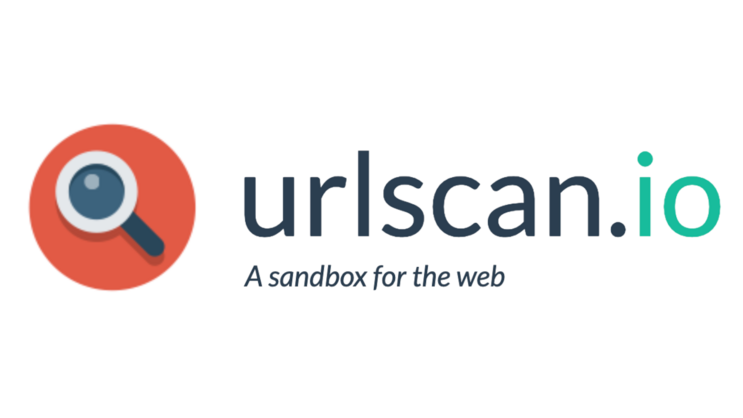In today’s interconnected world, the internet serves as a gateway to vast amounts of information, services, and interactions. However, this digital landscape also presents numerous risks and threats, ranging from phishing scams to malware-infected websites. In the realm of cybersecurity, staying vigilant against such hazards is paramount, and tools like the urlscan.io API offer invaluable assistance in this ongoing battle. In this article, we’ll dive into the world of web security and explore how the urlscan.io API empowers users to bolster their cyber defense strategies.
Understanding the urlscan.io API:
urlscan.io is a popular online service that provides a platform for scanning and analyzing websites for potential security issues and malicious content. The urlscan.io API extends this functionality, allowing developers, security professionals, and organizations to programmatically interact with the urlscan.io platform, automate website scans, and integrate web security analysis into their workflows.
Key Features and Functionality:
- Website Scanning: The core functionality of the urlscan.io API revolves around scanning websites and collecting valuable metadata, screenshots, and network information. By submitting URLs to the API, users can initiate scans that simulate interactions with the website, capturing details such as HTTP requests, JavaScript execution, and page rendering.
- Threat Intelligence: urlscan.io API provides users with insights into the potential threats associated with scanned websites. This includes identifying known malicious URLs, detecting phishing attempts, and highlighting indicators of compromise (IOCs) that may indicate the presence of malware or suspicious behavior.
- Metadata Extraction: In addition to threat detection, the urlscan.io API extracts metadata from scanned websites, including server information, SSL certificate details, and response headers. This information can be valuable for understanding the infrastructure behind a website and assessing its security posture.
- Screenshots and Rendering: The urlscan.io API captures screenshots of scanned websites at various stages of the scanning process, allowing users to visually inspect the appearance and layout of the site. This feature provides a quick and intuitive way to identify potentially malicious or deceptive content.
- Integration and Automation: One of the key strengths of the urlscan.io API is its seamless integration with existing security tools and workflows. By incorporating the API into security monitoring systems, SIEM platforms, and incident response processes, organizations can automate website scanning, threat detection, and response actions, thereby enhancing their overall cybersecurity posture.
Potential Applications:
The urlscan.io API offers a wide range of applications across different domains:
- Security Operations: Security operations teams can leverage the urlscan.io API to automate website scanning and threat detection, enabling proactive monitoring of potential security risks and swift response to emerging threats.
- Incident Response: During incident response investigations, security analysts can use the urlscan.io API to analyze potentially compromised websites, gather evidence, and identify malicious actors’ tactics and infrastructure.
- Threat Hunting: Security researchers and threat hunters can utilize the urlscan.io API to proactively search for suspicious websites, track malicious campaigns, and uncover new threats in the wild.
- Vulnerability Management: Organizations can integrate the urlscan.io API into their vulnerability management processes to assess the security posture of their web assets, identify vulnerable components, and prioritize remediation efforts.
- Compliance and Risk Management: Compliance teams can use the urlscan.io API to monitor websites for compliance with regulatory requirements, identify unauthorized or risky activities, and mitigate potential compliance violations.
Below is an example of how you can use the urlscan.io API in Python to submit a URL for scanning and retrieve the analysis results:
import requests
import json
class UrlScanIOAPI:
def __init__(self, api_key):
self.api_key = api_key
self.base_url = "https://urlscan.io/api/v1/"
def submit_url(self, url):
headers = {
"Content-Type": "application/json",
"API-Key": self.api_key
}
data = {
"url": url,
"visibility": "public"
}
response = requests.post(self.base_url + "scan/", headers=headers, data=json.dumps(data))
if response.status_code == 200:
scan_id = response.json()["uuid"]
return scan_id
else:
print("Failed to submit URL for scanning.")
return None
def get_scan_results(self, scan_id):
headers = {
"Content-Type": "application/json",
"API-Key": self.api_key
}
response = requests.get(self.base_url + f"result/{scan_id}/", headers=headers)
if response.status_code == 200:
return response.json()
else:
print("Failed to retrieve scan results.")
return None
# Replace 'YOUR_API_KEY' with your actual urlscan.io API key
api_key = 'YOUR_API_KEY'
# Initialize the UrlScanIOAPI object
urlscan_api = UrlScanIOAPI(api_key)
# URL to be scanned
url_to_scan = "https://example.com"
# Submit the URL for scanning
scan_id = urlscan_api.submit_url(url_to_scan)
if scan_id:
print(f"Scan submitted successfully. Scan ID: {scan_id}")
# Retrieve scan results
scan_results = urlscan_api.get_scan_results(scan_id)
if scan_results:
print("Scan Results:")
print(json.dumps(scan_results, indent=4))
else:
print("Failed to submit URL for scanning.")
Conclusion:
In conclusion, the urlscan.io API serves as a valuable tool for enhancing web security and mitigating cyber threats. Whether it’s scanning websites for malicious content, detecting phishing attempts, or automating threat detection and response, the urlscan.io API provides users with the insights and capabilities needed to strengthen their cybersecurity defenses. By incorporating urlscan.io into their security arsenal, organizations can proactively protect their web assets, safeguard sensitive data, and stay one step ahead of cyber adversaries in an increasingly complex threat landscape.


